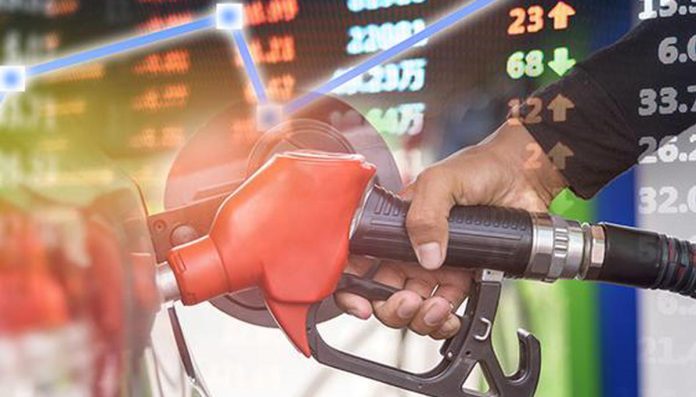- The Russian incursions into Ukraine will have a far-reaching impact on the economies of several countries amount to stating the obvious. The Indian economy still recovering from the devastating effects of the pandemic-induced restrictions will also have to brace up for the inevitability of challenges that needs no further emphasis either. The portents of trouble are already visible on the horizon as the Indian basket of crude has breached the psychological barrier of $100/barrel. The severity of the effect will be felt in the coming days for sure. As you are aware, 85% of our fuel requirements are met via imports and it is here that the citizens will feel the heat as the global geopolitical scenario undergoes drastic alterations.

PC: PYMNTS
- We all know that India shifted to daily pricing of petrol and diesel in 2017, at least on paper. However, there is price inertia whenever any elections approach, mostly state assembly elections. Right now, the ensuing assembly elections to five states have ensured the fuel prices do not head northwards much to the delight of consumers. Nonetheless, retail fuel prices will start rising in March, post-election results, to compensate for weeks of stasis. This, when private consumption has not caught up to pre-pandemic levels will spell trouble. Therefore, it is incumbent on the part of the Union Government to reduce its fuel taxes immediately to offset the impact of the recent increase in the cost of crude.
- Doing so will synchronize fiscal policy to an evolving global scenario. The period between 2014-15 was marked by a moderation in the price of crude oil. The Union Government used that phase to increase fuel taxes, thereby, capturing most of the benefits. Between FY-2015 and FY-2021, the government collected about Rs. 16.7 lakh crore through excise duty on petroleum products. Moreover, most of it was retained by the government as an increasing proportion of the duty which was reclassified as cess to keep it out of the divisible pool that is shared with states. As such, the Union Government today has the fiscal cushion to lower fuel taxes and hold up private consumption since the economic recovery over the last few quarters has been uneven.

PC: Julia Heita
- You know the contact-intensive sectors have not fully recovered and employment data points to a relative increase in the proportion of jobs in the informal sector. As reports suggest, around 80 of every 100 passenger vehicles sold here are entry-level two-wheelers, running on petrol. Thus, fuel price increases take a toll on a vulnerable segment of the population that is already feeling the pinch of elevated inflation in articles other than food and fuel. Consequently, a reallocation of household budgets to deal with higher fuel prices will keep consumption weak and undermine an important premise of a growth-oriented Budget.
- Remember, the Union Government did well in November last year to lower taxes on petrol and diesel by Rs. 5 and Rs. 10, respectively. However, it remains high at Rs. 27.9 for petrol and Rs. 21.8 for diesel. Needless to mention, there is room to further reduce them as the Budget was conservative in revenue estimates. Gross tax collection for FY-23 is expected to increase by 9.6% to Rs. 27.6 lakh crore, a level lower than the 11.1% growth in nominal GDP which is the foundation of the Budget. Alas, that prudence has now left the Government with the space to slash fuel taxes and insulate the economy from Ukraine’s impact on energy markets.






